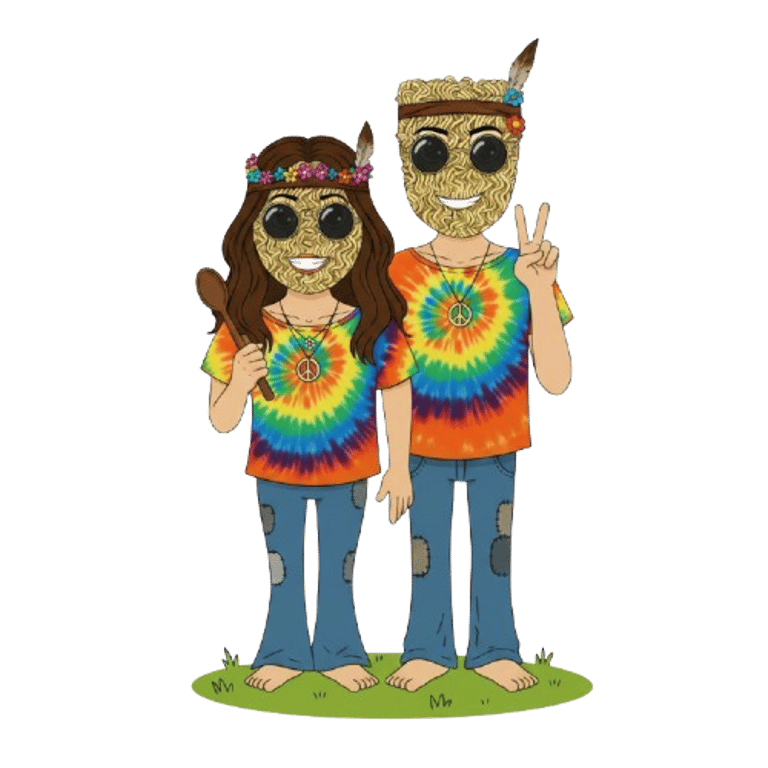Welcome to Noodles of Asia ! - A Woke Noodle Blog
Stirring the Local Pot: 5 Easy Ways for Concerned Citizens to Dive into Local Politics
Discover 5 easy ways to dive into local politics in our blog post at NoodlesOfAsia.com. From attending meetings to volunteering and educating your network, learn how to counter voter suppression and far-right overreach in 2025. Join #NoodlesForJustice to stir change in your community’s democratic broth.
Woke Noodles - NoodlesofAsia.com
7/6/20254 min read


At NoodlesOfAsia.com, we celebrate the ramen noodle as a universal emblem of connection—a humble packet that turns scarcity into shared sustenance, inviting everyone to the table. In 2025 America, with political tensions simmering—from voter suppression to far-right overreach—local politics offers a vital space for citizens to make a tangible impact. You don’t need to be a policy expert or a loud activist; small, deliberate actions at the municipal and county levels can reshape your community’s future—education, safety, housing, and more. The Brennan Center’s 2025 call for grassroots engagement underscores the stakes: Local action counters democratic erosion. This guide serves up five accessible methods for concerned citizens to get involved, plus practical tips to amplify your voice. Let’s dive in and season the local pot with action, one slurp at a time.
1. Attend Local Government Meetings: Be the Voice in the Room
Why It Matters: City councils, school boards, and county commissions decide zoning, school curricula, and budgets. These often sparsely attended meetings shape your daily life. In 2025, with far-right groups like Turning Point USA pushing school board takeovers, your presence can push back against extremist agendas. In Missouri’s Francis Howell School District, parent turnout in 2025 flipped votes on book bans.
How to Do It: Check your city or county’s website (search “[Your City] gov”) for meeting schedules—most are monthly, often hybrid. Sign up for public comment (3-5 minutes) to speak on issues like library funding or voter access. No expertise needed—share your story. The League of Women Voters notes 80% of local meetings draw fewer than 20 people, so one voice matters. In Texas, 2025 parent turnout saved a community center from closure.
Pro Tip: Prep a clear point—e.g., “Fund libraries to keep kids learning, not fighting culture wars.” Watch live-streamed meetings (check YouTube) to get the vibe. Follow up with emails to officials (addresses are public). Team up with neighbors for impact, like those Texas parents.
2. Volunteer for Local Campaigns: Fuel the Grassroots Fire
Why It Matters: Local races—mayors, sheriffs, school boards—control budgets and policies. Low turnout (often under 20%) lets fringe groups dominate. Volunteers can shift outcomes: A 2025 Arizona city council race flipped by 200 votes after door-knocking surged turnout.
How to Do It: Find candidates on county election sites or VoteSmart.org. Pick one aligned with your values—say, pro-voting access or public education. Tasks are beginner-friendly: phone banking (scripts provided), canvassing (walk with a partner), or distributing signs. Groups like Indivisible need 2-4 hours weekly, no experience required. In Georgia, 2025 volunteers elected a pro-Medicaid candidate, saving clinic funds.
Pro Tip: Start small—hand out flyers at a market. Join Swing Left for training. Follow candidate socials on X for events. Your work counters bots pushing lies, like 2024’s fake “polls closed” texts.
3. Join or Start a Community Advocacy Group: Amplify the Collective Voice
Why It Matters: Grassroots groups—local NAACP chapters, parent coalitions, or environmental clubs—drive change by uniting voices. In 2025, with Project 2025 threatening public services, groups like these saved Ohio libraries from 20% budget cuts. Your participation shapes policy and builds community power.
How to Do It: Search for groups via Meetup.com or local nonprofits (e.g., “NAACP [Your City]”). Attend a meeting—many are virtual—or start one with 3-5 neighbors on issues like voter access or school funding. Tools like ActionNetwork.org help organize petitions or rallies. In Florida, 2025 parent groups halted a book ban through petitions. No formal skills needed—just passion.
Pro Tip: Focus on one issue, like protecting drop boxes. Partner with groups like VoteRiders for voter ID help. Share meeting invites on Nextdoor to grow your circle. Small groups (10-20 people) can sway local votes, per Brennan Center data.
4. Become a Poll Worker or Election Observer: Guard the Vote
Why It Matters: Poll workers and observers ensure elections run smoothly and fairly. With 2025 voter suppression tactics—like ICE patrols near polls—your role counters intimidation. In 2024, poll worker shortages in swing states delayed counts; volunteers are critical.
How to Do It: Apply via your county election office (search “[Your County] elections”). Poll workers (paid, $100-$200/day) check IDs, assist voters, and manage ballots. Observers, often unpaid, monitor for fairness, reporting issues to groups like Common Cause. Training takes 2-4 hours; shifts are Election Day or early voting. In Georgia, 2025 observers stopped armed “monitors” from intimidating voters.
Pro Tip: Sign up early—deadlines are often 60 days pre-election. Bring a friend for morale. Check Vote411.org for state-specific rules. Your presence deters fraud claims, like those pushed by bots in 2024.
5. Educate and Mobilize Your Network: Share the Broth of Knowledge
Why It Matters: Misinformation—like 2025’s fake “ICE at polls” texts—suppresses turnout. Educating friends and family on local issues and voting logistics boosts participation. Pew’s 2025 data: 60% of non-voters cite confusion or distrust. Your network can amplify truth.
How to Do It: Host a coffee chat or Zoom to discuss local issues—say, school board races or ballot measures. Share resources from Vote.org or Ballotpedia on voting rules. Post fact-checked info on X or Nextdoor, like polling hours or ID requirements. In 2025, Michigan neighbors doubled Latino turnout by sharing Spanish-language voter guides. No big platform needed—just a group chat or porch talk.
Pro Tip: Use tools like VoteRiders’ text lines for ID help. Create a “voting buddy” pact to ensure turnout. Counter lies with links to Snopes or local election sites. Small talks spark big votes.
The Bigger Picture: Why Local Action Matters in 2025
Local politics isn’t glamorous, but it’s powerful. School boards shape curricula; councils fund clinics; sheriffs enforce (or resist) voter intimidation. With Project 2025 pushing federal overreach—like defunding public services—local wins are firewalls. Brennan’s 2025 report: Grassroots efforts flipped 15% of local races in 2024, saving libraries and voter access.
These five methods—attending meetings, volunteering, joining groups, guarding polls, educating networks—are low-barrier, high-impact. They counter far-right tactics, from book bans to ICE patrols, and rebuild trust. As NPR noted in 2025, local engagement drove Ohio’s library funding win, proving small acts scale.
Stirring the Future: A Call to Action
Like a ramen pot simmering with shared contributions, local politics thrives on collective effort. In 2025’s fraught landscape, your voice—whether at a council podium or a neighbor’s porch—counters division. At NoodlesOfAsia.com, we urge: Host “noodle nights” to plan action over bowls, sticker #NoodlesForJustice on voter guides, and donate to groups like the ACLU fighting suppression.
Democracy’s broth is only as rich as the hands that stir it. Start small, act local, and vote always. What’s your first step in local politics? Share below.
